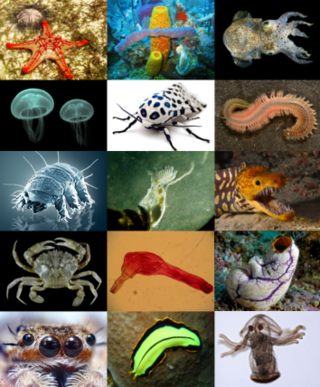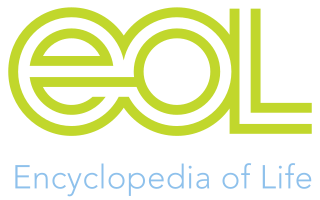
Death is the irreversible cessation of all biological functions that sustain an organism. For organisms with a brain, death can also be defined as the irreversible cessation of functioning of the whole brain, including the brainstem, and brain death is sometimes used as a legal definition of death. The remains of a former organism normally begin to decompose shortly after death. Death is an inevitable process that eventually occurs in all organisms. Some organisms, such as Turritopsis dohrnii, are biologically immortal. However, they can still die from other means than aging.
Hedonism refers to a family of theories, all of which have in common that pleasure plays a central role in them. Psychological or motivational hedonism claims that human behavior is determined by desires to increase pleasure and to decrease pain. Normative or ethical hedonism, on the other hand, is not about how humans actually act but how humans should act: people should pursue pleasure and avoid pain. Axiological hedonism, which is sometimes treated as a part of ethical hedonism, is the thesis that only pleasure has intrinsic value. Applied to well-being or what is good for someone, it is the thesis that pleasure and suffering are the only components of well-being. These technical definitions of hedonism within philosophy, which are usually seen as respectable schools of thought, have to be distinguished from how the term is used in "everyday language". In that sense, it has a negative connotation, linked to the egoistic pursuit of short-term gratification by indulging in sensory pleasures without regard for the consequences.

Indianapolis, colloquially known as Indy, is the capital and most populous city of the U.S. state of Indiana and the seat of Marion County. According to the 2020 United States census, the balance population was 887,642. It is the 16th-most populous city in the U.S., the third-most populous city in the Midwest after Chicago and Columbus, Ohio, and the fourth-most populous state capital after Phoenix, Arizona, Austin, Texas, and Columbus. The Indianapolis metropolitan area is the 33rd-most populous metropolitan statistical area in the U.S., with 2,111,040 residents. Its combined statistical area ranks 28th, with a population of 2,431,361. Indianapolis covers 368 square miles (950 km2), making it the 18th largest city by land area in the U.S.
30 (thirty) is the natural number following 29 and preceding 31.
The world's principal religions and spiritual traditions may be classified into a small number of major groups, though this is not a uniform practice. This theory began in the 18th century with the goal of recognizing the relative levels of civility in different societies, but this practice has since fallen into disrepute in many contemporary cultures.
47 (forty-seven) is the natural number following 46 and preceding 48. It is a prime number.
1000 or one thousand is the natural number following 999 and preceding 1001. In most English-speaking countries, it can be written with or without a comma or sometimes a period separating the thousands digit: 1,000.

The Integrated Taxonomic Information System (ITIS) is an American partnership of federal agencies designed to provide consistent and reliable information on the taxonomy of biological species. ITIS was originally formed in 1996 as an interagency group within the US federal government, involving several US federal agencies, and has now become an international body, with Canadian and Mexican government agencies participating. The database draws from a large community of taxonomic experts. Primary content staff are housed at the Smithsonian National Museum of Natural History and IT services are provided by a US Geological Survey facility in Denver. The primary focus of ITIS is North American species, but many biological groups exist worldwide and ITIS collaborates with other agencies to increase its global coverage.

The Encyclopaedia Judaica is a 22-volume English-language encyclopedia of the Jewish people, Judaism, and Israel. It covers diverse areas of the Jewish world and civilization, including Jewish history of all eras, culture, holidays, language, scripture, and religious teachings. First completed in 1971–1972, the encyclopedia had been published in two editions by 2010, accompanied by a few revisions.

Jimmy Donal Wales, also known on Wikipedia by the nickname Jimbo Wales, is an American–British Internet entrepreneur, webmaster, and former financial trader. He is a co-founder of the online non-profit encyclopedia Wikipedia and the for-profit wiki hosting service Fandom. He has worked on other online projects, including Bomis, Nupedia, WikiTribune, and WT Social.
Word of Life Fellowship is an international evangelistic Christian ministry. The headquarters is in Schroon Lake, New York, in the United States.

Te Ara: The Encyclopedia of New Zealand is an online encyclopedia established in 2001 by the New Zealand Government's Ministry for Culture and Heritage. The web-based content was developed in stages over the next several years; the first sections were published in 2005, and the last in 2014 marking its completion. Te Ara means "the pathway" in the Māori language, and contains over three million words in articles from over 450 authors. Over 30,000 images and video clips are included from thousands of contributors.

New Zealand is an island country in the southwestern Pacific Ocean. It consists of two main landmasses—the North Island and the South Island —and over 700 smaller islands. It is the sixth-largest island country by area and lies east of Australia across the Tasman Sea and south of the islands of New Caledonia, Fiji, and Tonga. The country's varied topography and sharp mountain peaks, including the Southern Alps, owe much to tectonic uplift and volcanic eruptions. New Zealand's capital city is Wellington, and its most populous city is Auckland.
The Catalogue of Life is an online database that provides an index of known species of animals, plants, fungi, and microorganisms. It was created in 2001 as a partnership between the global Species 2000 and the American Integrated Taxonomic Information System. The Catalogue is used by research scientists, citizen scientists, educators, and policy makers. The Catalogue is also used by the Biodiversity Heritage Library, the Barcode of Life Data System, Encyclopedia of Life, and the Global Biodiversity Information Facility. The Catalogue currently compiles data from 165 peer-reviewed taxonomic databases that are maintained by specialist institutions around the world. As of September 2022, the COL Checklist lists 2,067,951 of the world's 2.2m extant species known to taxonomists on the planet at present time.

Animals are multicellular, eukaryotic organisms in the biological kingdom Animalia. With few exceptions, animals consume organic material, breathe oxygen, are able to move, can reproduce sexually, and grow from a hollow sphere of cells, the blastula, during embryonic development. As of 2022, 2.16 million living animal species have been described—of which around 1.05 million are insects, over 85,000 are molluscs, and around 65,000 are vertebrates—but it has been estimated there are around 7.77 million animal species in total. Animals range in length from 8.5 micrometres (0.00033 in) to 33.6 metres (110 ft). They have complex interactions with each other and their environments, forming intricate food webs. The scientific study of animals is known as zoology.

The Encyclopedia of Life (EOL) is a free, online encyclopedia intended to document all of the 1.9 million living species known to science. It is compiled from existing trusted databases curated by experts and with the assistance of non-experts throughout the world. It aims to build one "infinitely expandable" page for each species, including video, sound, images, graphics, as well as text. In addition, the Encyclopedia incorporates content from the Biodiversity Heritage Library, which digitizes millions of pages of printed literature from the world's major natural history libraries. The project was initially backed by a US$50 million funding commitment, led by the MacArthur Foundation and the Sloan Foundation, who provided US$20 million and US$5 million, respectively. The additional US$25 million came from five cornerstone institutions—the Field Museum, Harvard University, the Marine Biological Laboratory, the Missouri Botanical Garden, and the Smithsonian Institution. The project was initially led by Jim Edwards and the development team by David Patterson. Today, participating institutions and individual donors continue to support EOL through financial contributions.

Philosophy is a systematic study of general and fundamental questions concerning topics like existence, reason, knowledge, values, mind, and language. It is a rational and critical inquiry that reflects on its own methods and assumptions.
Rhadalognathus was a prehistoric crocodile-like amphibian that belongs to the Mastodonsauridae family. Not much is known about this creature but it lived in the Triassic period. Rhadalognathus is also the name of the genus in which the organism belongs within. Rhadalognathus was found in northern Arizona, US, by S. P. Welles in 1947. The size of the organism is unknown but its skull is about 17in long and weighs 7lbs.

The Order of Friars Minor is a mendicant Catholic religious order, founded in 1209 by Francis of Assisi. The order adheres to the teachings and spiritual disciplines of the founder and of his main associates and followers, such as Clare of Assisi, Anthony of Padua, and Elizabeth of Hungary, among many others. The Order of Friars Minor is the largest of the contemporary First Orders within the Franciscan movement.

The Interim Register of Marine and Nonmarine Genera (IRMNG) is a taxonomic database which attempts to cover published genus names for all domains of life from 1758 in zoology up to the present, arranged in a single, internally consistent taxonomic hierarchy, for the benefit of Biodiversity Informatics initiatives plus general users of biodiversity (taxonomic) information. In addition to containing over 490,000 published genus name instances as at March 2020, the database holds over 1.7 million species names, although this component of the data is not maintained in as current or complete state as the genus-level holdings. IRMNG can be queried online for access to the latest version of the dataset and is also made available as periodic snapshots or data dumps for import/upload into other systems as desired.











